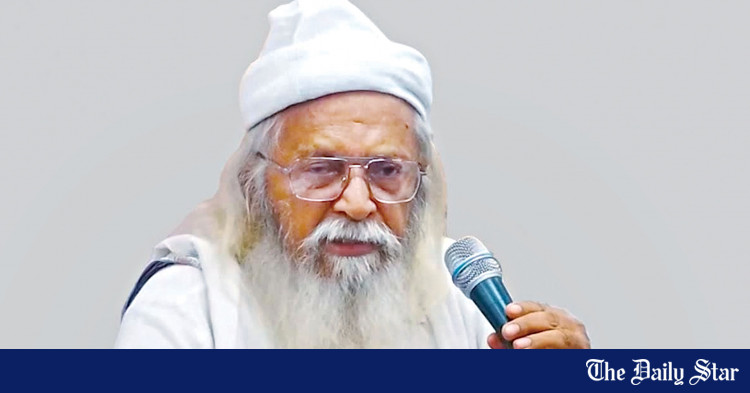Saif
Senior Member
- Messages
- 17,442
- Likes
- 8,381
- Nation

- Residence

- Axis Group


Interim govt will restore people’s voting rights: Moyeen hopes
Bangladesh Nationalist Party (BNP) Standing Committee Member Dr Abdul Moyeen Khan on Wednesday said they believe that the Interim Government will bring back the voting rights of the people. “The current interim government is the government of the people. We believe that the important respons
Interim govt will restore people’s voting rights: Moyeen hopes
BSS
Published :
Jan 22, 2025 18:39
Updated :
Jan 22, 2025 18:39

Bangladesh Nationalist Party (BNP) Standing Committee Member Dr Abdul Moyeen Khan on Wednesday said they believe that the Interim Government will bring back the voting rights of the people.
“The current interim government is the government of the people. We believe that the important responsibility entrusted with them for restoring the voting rights of the people will be materialized,” he hoped.
Moyeen Khan said this after paying floral wreath at the grave of BNP founder Shaheed President Ziaur Rahman at Sher-e-Bangla Nagar here with leaders and activists of the UK BNP chapter this afternoon.
UK BNP Vice President Abed Raja was present among others.
Moyeen Khan said BNP will reestablish the democracy for which Bangladesh became independent in 1971.
Calling upon the government to hold national elections as soon as possible, the senior BNP leader said, “I hope, the government will quickly complete the reforms in important sectors and return state power to the representatives of the people.”
“That’s why BNP is cooperating with the government in every possible way so that it can properly fulfill its important responsibility for restoring the rights of the people,” he said.
Stating that the Awami League leaders was forced to flee due to the student-people movement, Moyeen Khan said, their fleeing is not new, like 2024 they fled in 1971, leaving the people at gunpoint of Pakistani occupying forces.
The senior BNP leaders said that the Awami League government cheated with the people of Bangladesh for the past 15 years, although they claimed to be a pro-independence force.
“In fact, Awami League is a force against the country’s independence,” he said.
Moyeen Khan said AL killed democracy after independence and formed one-party rule in 1975.
“Awami League established an unwritten BAKSAL in the country in the last 15 years,” he said.
BSS
Published :
Jan 22, 2025 18:39
Updated :
Jan 22, 2025 18:39
Bangladesh Nationalist Party (BNP) Standing Committee Member Dr Abdul Moyeen Khan on Wednesday said they believe that the Interim Government will bring back the voting rights of the people.
“The current interim government is the government of the people. We believe that the important responsibility entrusted with them for restoring the voting rights of the people will be materialized,” he hoped.
Moyeen Khan said this after paying floral wreath at the grave of BNP founder Shaheed President Ziaur Rahman at Sher-e-Bangla Nagar here with leaders and activists of the UK BNP chapter this afternoon.
UK BNP Vice President Abed Raja was present among others.
Moyeen Khan said BNP will reestablish the democracy for which Bangladesh became independent in 1971.
Calling upon the government to hold national elections as soon as possible, the senior BNP leader said, “I hope, the government will quickly complete the reforms in important sectors and return state power to the representatives of the people.”
“That’s why BNP is cooperating with the government in every possible way so that it can properly fulfill its important responsibility for restoring the rights of the people,” he said.
Stating that the Awami League leaders was forced to flee due to the student-people movement, Moyeen Khan said, their fleeing is not new, like 2024 they fled in 1971, leaving the people at gunpoint of Pakistani occupying forces.
The senior BNP leaders said that the Awami League government cheated with the people of Bangladesh for the past 15 years, although they claimed to be a pro-independence force.
“In fact, Awami League is a force against the country’s independence,” he said.
Moyeen Khan said AL killed democracy after independence and formed one-party rule in 1975.
“Awami League established an unwritten BAKSAL in the country in the last 15 years,” he said.







